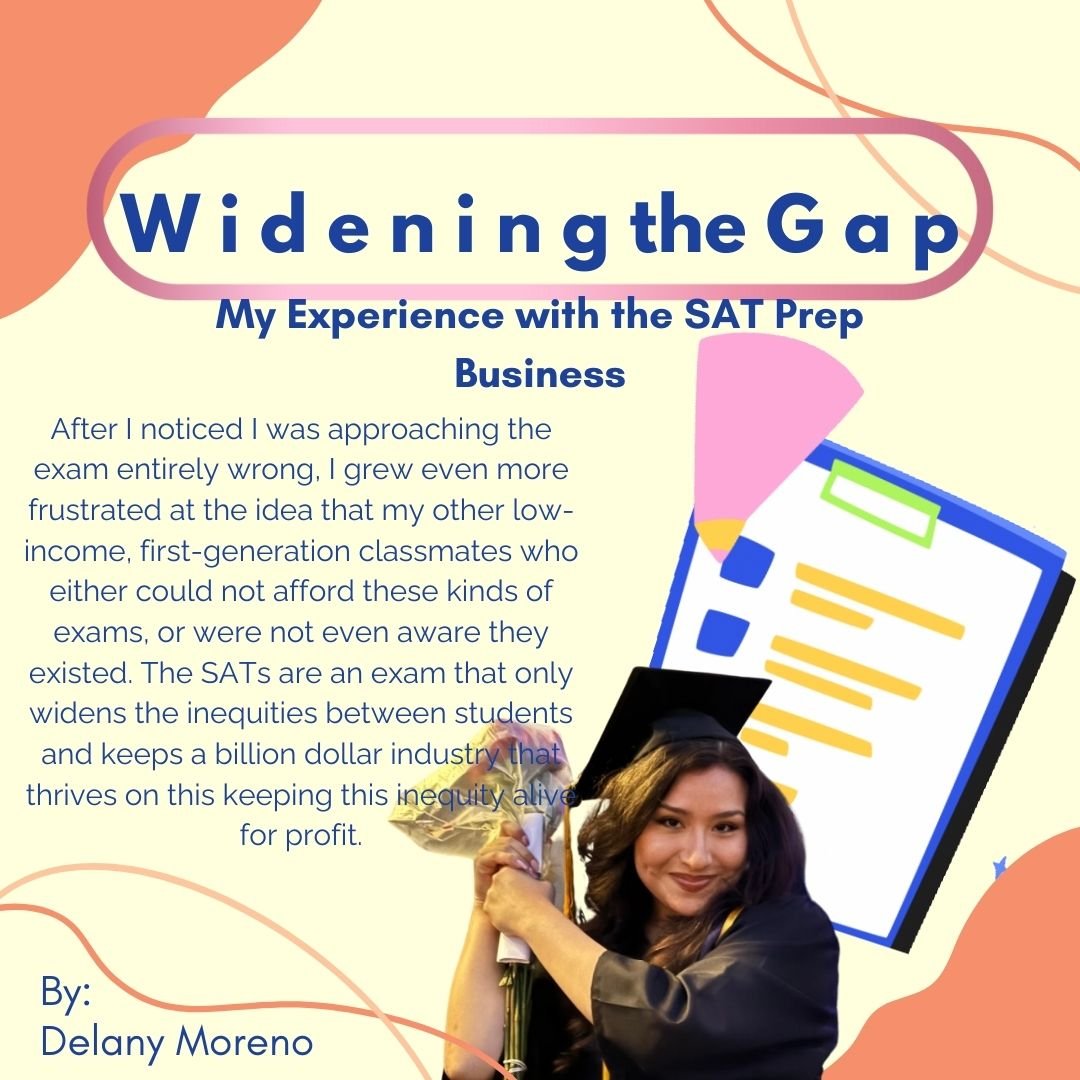Widening the Gap: My Experience with the SAT Prep Business
By Delany Moreno
Upon hearing the recent news that top U.S. universities like Dartmouth, Yale, Brown are going to require SAT scores on their 2024-25 application cycles again, I recalled my own experience as a high school student who had to apply during the 2019-20 admissions cycle and the inequity standardized tests like these brought forth. Prior to the decision of many universities announcing to make testing optional during the pandemic, high school students across the country were stressed out preparing for an exam that could completely change their academic futures. The SAT prep business is a billion dollar industry that capitalizes off the stress and anxieties of both students and parents as a high SAT score helps increase the chance of students getting into top universities like the Ivy Leagues. This immense kind of pressure definitely resonated with me as I dreamed of going to some of the country’s top universities but all of my practice SAT scores were in the 950-1050 range. There was not much practice being offered at my high school at the time other than some free Khan Academy questions and the actual PSATs themselves. My school’s average score among students was also in the 850-900 range.
This was what led my older sister to offer to pay for SAT prep courses to boost my scores. She had heard from some coworkers, who all attended high ranking universities, in a conversation that they had all either taken SAT prep courses themselves or paid for their own children’s prep courses. I was lucky enough to have an older sister who paid upwards of $1,000 for an SAT prep course that promised a 1300 score on the SAT or our money back. The courses were rigorous, requiring us to take a full practice exam every week to track our progress for two months. But after listening to the biweekly lectures, I realized they were not teaching me to speed up my test taking skills but they were teaching me a whole new way of thinking and approaching this exam entirely. Before this course, I thought you needed to read the passages in the English exam portion entirely, which would always lead me to running out of time and guessing toward the end. But the course had shown me that there was a basic formulaic structure to these exams and that there were maybe about 4 different kinds of questions in each section. I was explained it was not necessary to read the entire passage but instead read the first question, scan the answer quotes for the next question and base my answer off of one of those. This realization made the world of a difference. I ended up scoring a 1300 on my final SAT exam and ended up getting admitted into UC Berkeley.
After I noticed I was approaching the exam entirely wrong, I grew even more frustrated at the idea that my other low-income, first-generation classmates who either could not afford these kinds of exams, or were not even aware they existed. The SATs are an exam that only widens the inequities between students and keeps a billion dollar industry that thrives on this keeping this inequity alive for profit.

